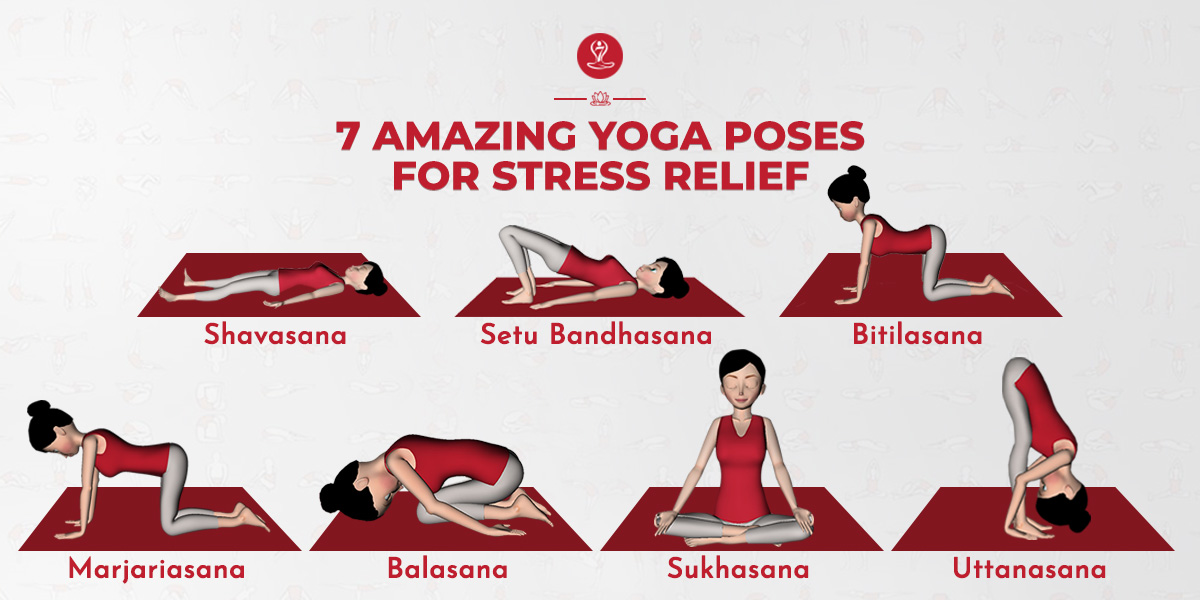
Focusing on one habit can help you build healthy habits. This article provides tips on how to make this happen, including how to make small changes to your daily routine. Once you've chosen a habit, make sure to write down what you want to achieve, short-term and long-term consequences, and rewards for reaching each goal. This will help you create a plan for how to implement it.
Small changes to your daily schedule can make a big difference
Making small changes in your daily routine can have many benefits. Small changes can make a big difference in your health and mood. Habit formation is when small changes are made to become automatic. These changes don't have to be life-altering, but they can add up over time and improve your health. For maximum benefits, incorporate these changes into your daily schedule. You don't have to be an expert. This article will demonstrate how to make small, positive changes in your life to make it more enjoyable and healthy.
Healthy habits can make a big difference in your overall well-being. It's easy to make these healthy habits and they will be easy to maintain. It's better not to make large changes at once. It is easier to make small changes to your daily routine than to set big goals. This can help you to improve your overall health. It's a great way for you to improve your diet and introduce new ingredients into your everyday meals.
Focus on the habit that you enjoy
A healthy habit can be built by focusing on something that you love doing. If you have something you look forward to, you will be more likely to stick with your goals. It can be difficult for people to adopt new habits. But with some help it is possible. It is important to start with a favorite habit in order to make these new habits stick. Choose an activity you love if you have put off exercise or quit smoking for a while.

After you have decided to adopt a habit, you need to plan for any resistance. Think ahead about possible excuses and troubleshoot them before they become excuses. By acknowledging these obstacles, you'll weaken the power of excuses. Remember to make a concrete plan to tackle any obstacles. A plan to change your habits will help make it easier.
Small goals are important
You can set small goals to help you develop healthy habits. These goals allow you to be more flexible in reaching them. You can continue with the goal next month or change it to something else entirely. Small goals are more manageable. When you commit to your goals on a regular basis, you will see that they compound over time. Eventually, you'll be surprised by how well they work.
For example, if you train for a 10k race, you'll be burning extra calories. A plant-based diet is a better option to lower cholesterol. You can set a smaller goal for your long-term goals, such as running a marathon. This will motivate you to continue. You will find it easier to reach your goals. It is the same for smaller goals.
Keeping track of your progress
You can keep track of how you are doing when creating healthy habits. This will help motivate you to stick with your plan. It could be as simple as keeping track of your progress with a journal or on a wall calendar. Depending on your goal, you may want to include more complex actions. To start, take a few simple steps to get you started. As you become more proficient at the habit, add more. By tracking how much water you consume each day, you can keep yourself motivated and focused on drinking more water.
Some apps are better than others. Fitbit, one of the most popular habits trackers, helps you track your steps. Water intake, mood and sleep are all tracked by it. It is available on multiple platforms and offers a free one-week trial. Everyday is another habit-tracking app. The app features a visual dashboard and a chain-based tracking system to help you form habits more easily and are less likely to fail.
You deserve to be rewarded for your efforts in building healthy habits

A reward can be anything that you enjoy. This could include anything from a quick afternoon nap to a delicious slice of cake. Your reward for creating a healthy habit must be in line with your overall goal. You should also look forward to it. You must make the reward easy to reach, be personally valuable and align with your overall goal. To motivate yourself, you can use short-term rewards.
It can be difficult to create new habits. Sometimes, it may even be necessary to use bribery. Science is here to help you: Creating a new habit takes a combination both of willpower as well as external factors. Take a look around and notice where you spend the most time. What situations or activities could you modify to reduce the amount of steps required to get to your new healthy routine.
FAQ
Why is mental health so important?
Work, play, learn, and love. Our mental health is a reflection of our overall well-being. Mental health refers to the many factors that affect us daily, including our physical, psychological, spiritual, social, and environmental well-being. There are many options for taking care of yourself mentally and physically as well as emotionally, spiritually, financially, and socially. You don't have to do everything at once; just start somewhere!
Understanding where you are now is the first step to improving your mental health. Take this quiz and find out how much you're doing to support your mental wellbeing. If you score low, then you might want to consider making some changes to your lifestyle.
Suppose you scored high, congratulations! Consider the following tips to improve and maintain your mental well-being.
-
Get Enough Sleep. Get enough sleep to keep your brain alert and stimulated. The American Academy of Pediatrics (AAP) recommends that you get at least 7-8 hours of sleep each night.
-
Exercise Regularly. Exercise releases endorphins in your body which makes you happier and less likely to stress. Aim for 30 minutes of exercise five times per week.
What are the 5 ways you can improve your mental and emotional health?
-
Exercise - It improves brain function and raises energy levels.
-
Sleep - Getting enough sleep helps reduce stress and anxiety.
-
Nutrition - Healthy eating such as fruits, vegetables and meats will keep you healthy and energized.
-
Meditation - Meditating regularly reduces stress and anxiety.
-
Socialization - Spending quality time with family and friends keeps us happy.
How can I prevent my mental health problems from happening?
It's not always easy to prevent mental illness. But, here are some tips to keep in mind:
-
Don't drink alcohol. You can have a negative effect on your mood and increase your chance of getting depressed.
-
Avoid drugs. Avoid drugs. They can alter brain chemistry, making you feel worse.
-
Get enough sleep. Depriving yourself of sleep can lead to anxiety and depression.
-
Exercise regularly. Exercise releases endorphins which can make you happy.
-
Choose healthy foods. Do not eat junk food. You will feel lethargic and depressed.
-
Spend time with your loved ones. Spending time with people you love can make you feel happier.
-
Have fun. Have fun with your life.
-
Retire from social media. Social media sites can make you feel lonely and isolated.
-
Be kind to your self. Treat yourself nicely, even if you aren't feeling great.
-
Ask for help. Ask for help. Talking with a friend or family member is a great way to get help.
-
Remember that it's okay to cry. It helps to release stress and tension. It does not necessarily mean that something is wrong.
-
Keep busy. Do something you enjoy.
-
It is important to maintain good hygiene. A lack of hygiene can make you look unattractive and unclean.
-
Stay connected. Stay positive by connecting with others.
-
Learn how to relax. Meditation and yoga are two relaxation techniques that can help you deal with stress better.
-
Find meaning in your work. Finding purpose in your job and hobbies can bring you satisfaction.
-
Keep your eyes on the present moment. When you focus on the present moment, you won't worry so much about the future.
-
Set goals. Goal setting can help you be motivated to reach your goals.
-
Do something kind for yourself. Your self-esteem can be raised by doing something kind for yourself.
-
Practice gratitude. Gratitude can help to appreciate all the blessings in your life.
-
Volunteer. Volunteering can be an enjoyable way to spend time and make a difference in the world.
-
Give back. Giving back to others can make you feel fulfilled.
-
Pay attention to warning signs. If you notice any changes in your behavior, don't hesitate to reach out for help.
What should I do if I am experiencing mental health issues?
It is vital to seek support if you are experiencing any mental health problems. You may have been subjected to trauma or abuse. This could have affected your perception of yourself.
An eating disorder, addiction, and other mental illnesses could also be a problem. These disorders can cause significant damage to your personal and professional life.
It is best to not try to solve them all by yourself. Talk to someone who is familiar with the subject. You can get the support you need from a professional therapist to help you overcome these difficulties.
What is Positive Psychology? Why is it Important?
Positive psychology focuses on what makes us feel better about ourselves, such as happiness, optimism, gratitude, hope, love, kindness, compassion, forgiveness, courage, humility, curiosity, empathy, spirituality, and meaning. Positive psychology seeks to make individuals happier, healthier and more intelligent through self-improvement.
Two types of positive psychology exist: trait positive psychology (or process positive psychology). Trait positive psychology studies the natural behavior of people. How we can use certain strategies for achieving specific goals in process positive psychology
Why is students' mental health important?
Students need to feel good about their mental health in order to be able focus on school and succeed academically. Without feeling like yourself, you will not be able perform well at school. Students suffering from depression are more likely to miss class, which can lead them to get poor grades. This can lead to dropping out from high school or college.
Talk to your teachers or parents if you are struggling with depression. They will help you get the treatment you need.
Not everyone with depression requires medication. Talk therapy is effective for many people. Talk therapy is effective for many people.
Is it possible for me to be depressed?
Depression is a common problem among teens. It's important to remember that depression is a common problem among teens.
This does not mean you are weak or crazy. Many people with depression are unaware of their condition. Depression is a medical condition.
There are different kinds of depression. Some people experience only sadness. Other people may experience other emotions as well. There are different degrees of severity.
Some people have mild depression while others suffer from severe depression. It's important that you understand that depression doesn't always have to be bad. Sometimes, it helps us cope with stressful events.
If you feel constantly tired or sad, consult a doctor. Your doctor can diagnose you, and help you decide whether treatment is necessary.
Statistics
- Similarly, while there is some agreement about the boundaries of typical mental disorders 2, there is likely less agreement about those for positive mental health. (ncbi.nlm.nih.gov)
- Neuropsychiatric diseases are the leading cause of death and disability in the U.S., accounting for 18.7 percent of all years of potential lifespan loss and premature mortality.
- Similarly, for positive mental health, there is likely to be substantial agreement about some typical components (e.g., resilience to stress) 6, and controversy about more atypical components (e.g., career consolidation). (ncbi.nlm.nih.gov)
- More than 50% will be diagnosed with a mental illness or disorder at some point in their lifetime.3 (cdc.gov)
- It means no drinking any alcoholic beverages and no taking any drugs that aren't 100% natural.
External Links
How To
How to Improve Your Memory
Memory is something that everyone would love to be able remember better. Unfortunately, memory impairment is something that all of us will experience at one time or another. In fact, more than half of Americans over 65 suffer from some form of dementia.
No matter if you are dealing with Alzheimer's disease, dementia or any other form of cognitive decline, there are many options to improve your memory. These are three easy steps you can do today to improve your memory.
-
Eat More Fruits & Vegetables. Vegetables and fruits are rich in antioxidants, vitamins and minerals as well as fiber and phytochemicals which can boost brain function. They also have essential nutrients that protect against neurological disease.
-
Get Enough Sleep. A lack of sleep can lead to memory loss and poor concentration. Sleep well for seven to eight hours each night.
-
Take a Walk. Walking increases blood flow to the brain which can improve memory. Walking can help you lose weight, which will make you appear slimmer and healthier.